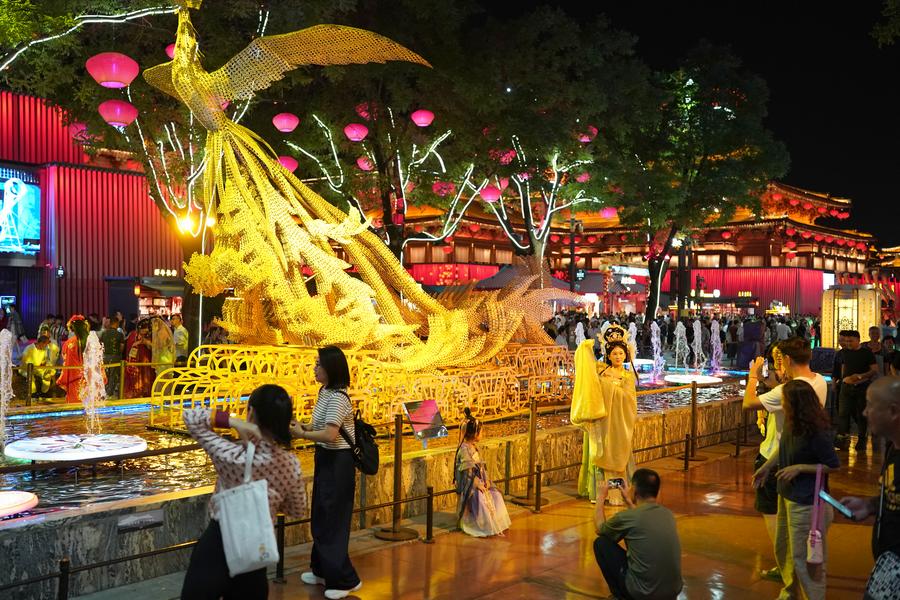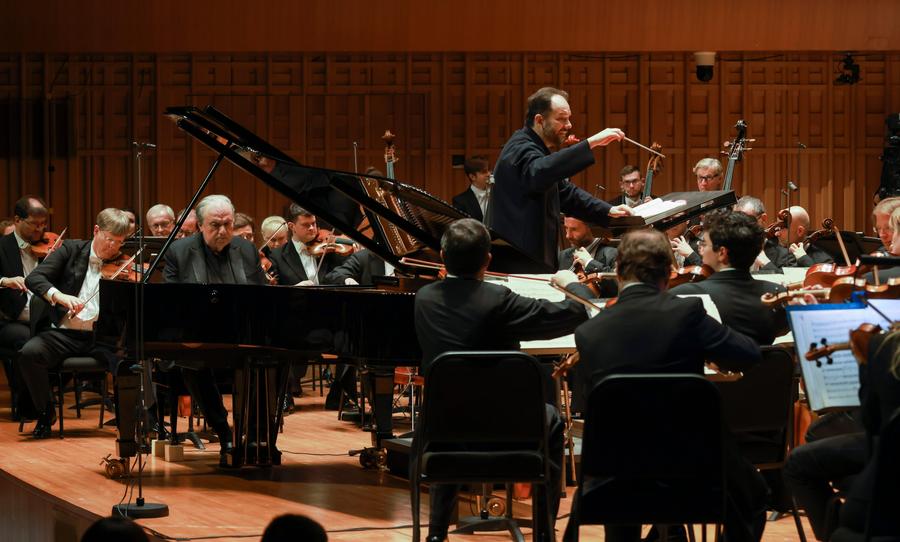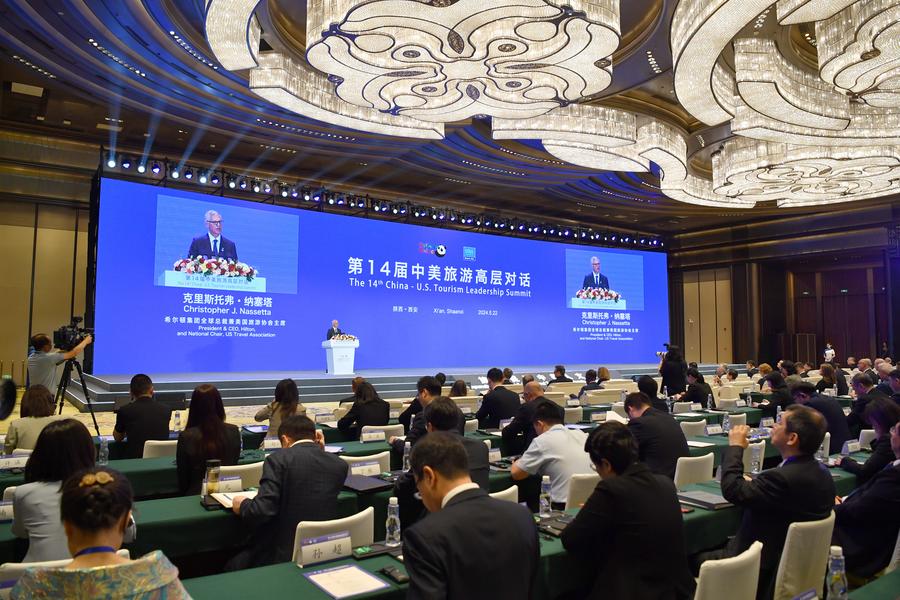


People visit the Grand Tang Mall in Xi'an, northwest China's Shaanxi Province, May 20, 2024. (Xinhua/Shao Rui)
XI'AN, Dec. 19 (Xinhua) -- Two millennia ago, China's ancient capital of Xi'an witnessed the fusion of Eastern and Western cultures as the starting point of the Silk Road. Today, this historic city remains a cultural nexus, bridging China with the rest of the world through its rich legacy and ongoing international engagements.
From late October to early November, the Vienna Philharmonic Orchestra toured four Chinese cities, among which Xi'an, capital of northwest China's Shaanxi Province, was the only stop in western China.
"I watch the New Year's Concert in the Golden Hall of the Musikverein in Vienna on television every year. I couldn't believe I was hearing the same movements in my hometown," said Zhang Shuhua, a 29-year-old classical music enthusiast in Xi'an.
The concert marked the opening of an international music festival in the city, during which over 20 performances from both domestic and international artists are staged from November this year to January next year, including a recital by the world-known Polish pianist Krystian Zimerman.

The Vienna Philharmonic Orchestra performs at Xi'an Concert Hall in Xi'an, northwest China's Shaanxi Province, Nov. 3, 2024. (Xinhua)
Home to the famous Terracotta Warriors and numerous other historic sites like the Giant Wild Goose Pagoda and the Bell Tower, Xi'an was founded over 3,100 years ago and served as the capital of 13 dynasties in China. During its heyday in the Tang Dynasty (618-907), when the city was known as Chang'an, it attracted an influx of foreign merchants, envoys and students from different countries.
Now, the Grand Tang Mall at the foot of the Giant Wild Goose Pagoda is lined with buildings that exude the style reminiscent of the Tang Dynasty. At night, light signs hung from trees, inscribed with Tang poetries, conjure up a nostalgic reflection of the city's glorious past.
Dressed in traditional Chinese Hanfu clothing, cast members of the original musical "The Phantom of the Opera" strolled around historic scenic spots and savored local delicacies in Xi'an during their China tour in August.
"What makes Xi'an so interesting is the marriage of the old and the new. So you'll pass the Bell Tower, and then you're going to the thriving street of food and modern stuff," said Grace Roberts, who played the heroine Christine.
The musical was staged eight times this year in Xi'an, drawing more than 13,500 viewers and generating 10 million yuan (about 1.39 million U.S. dollars) in revenue, a record high in the city, according to Yang Dan, a staff member with the Shaanxi Opera House, where the show was staged.
A series of international events further demonstrate the city's growing global influence as a cultural hub. For example, the 14th China-U.S. Tourism Leadership Summit in May brought together nearly 400 representatives of the governments, institutions and tourism-related businesses of the world's top two economies, aiming to further revive and develop tourism cooperation between the two countries.

The opening ceremony of the 14th China-U.S. Tourism Leadership Summit is held in Xi'an, northwest China's Shaanxi Province, May 22, 2024. (Xinhua/Shao Rui)
The city also hosted the first China-Central Asia Summit in 2023, with a park featuring Central Asian elements open to the public near the summit site this year. Covering more than 50 hectares, the park, consisting of landscape, shopping and restaurant sections, has attracted an average of 10,000 visitors daily during workdays.
In June, more than 100 overseas students from 19 countries attended a performance of the Xi'an wind and percussion ensemble. This ancient musical form, which involves over 20 instruments, is dubbed the "symphony of ancient China" and was inscribed on UNESCO's list of the Intangible Cultural Heritage of Humanity in 2009.
"The performance was both magnificent and beautiful," said Thanapong Ngarnrungruang, a Thai graduate from Xi'an Jiaotong University. After the show, he and other foreign students also learned to identify different traditional Chinese instruments.
"Although we come from different countries, cultural communication here provides ways that inspire and connect people across borders," he added.
点击右上角![]() 微信好友
微信好友
 朋友圈
朋友圈

请使用浏览器分享功能进行分享
